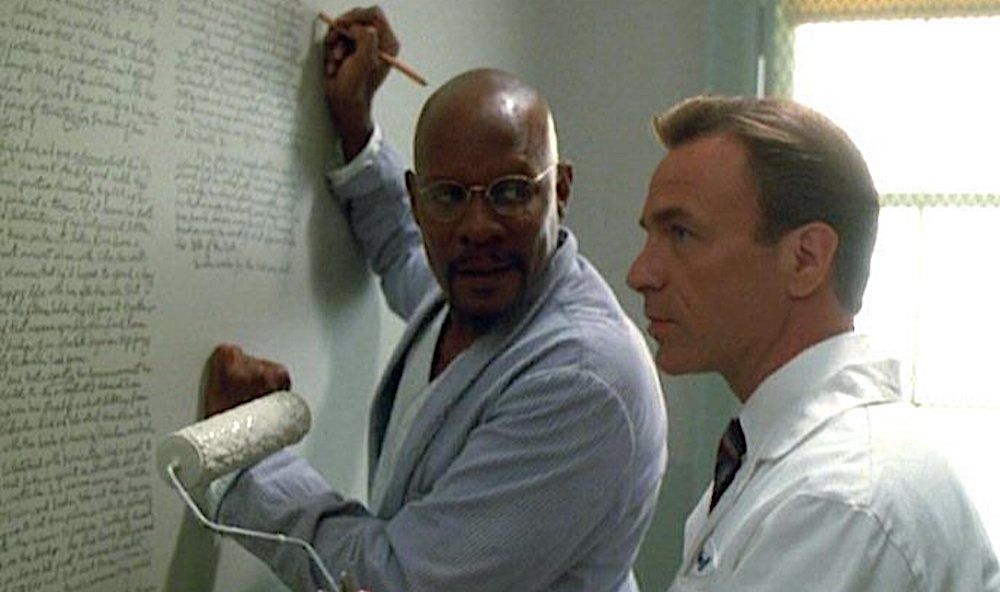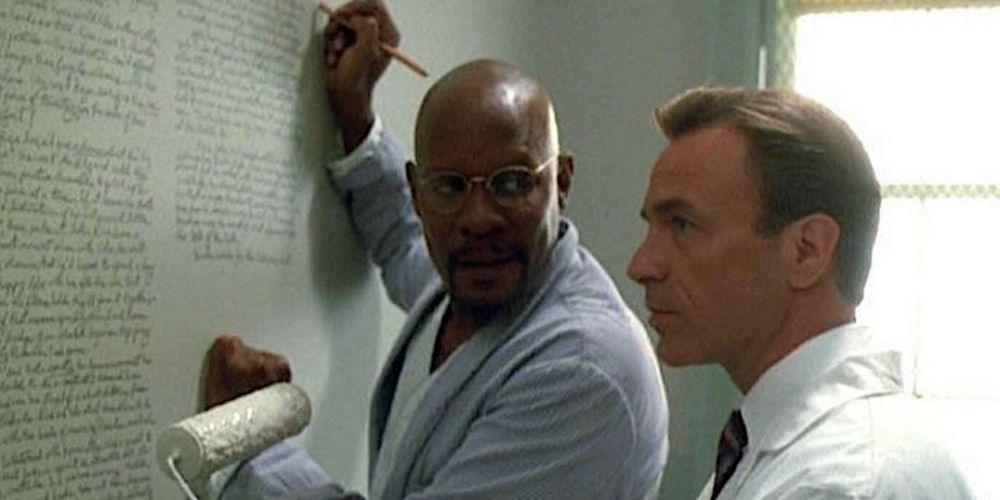Former Deep Space Nine showrunner Ira Steven Behr revealed a game-changing alternate ending to Star Trek's third series. In the series finale that actually aired, the show concluded with Captain Benjamin Sisko achieving a different plane of existence as he fulfilled his destiny with the Prophets.
In the sixth season's "Far Beyond the Stars," Sisko receives a vision from the Prophets that transports him back to 1950s America. The episode allowed the show to deal directly with racism in a way that the conceit of an idyllic Federation would not allow. Ben Sisko transformed into Benny Russell, a science fiction writer that worked on a serialized story called "Deep Space Nine." The story never gets published due to the fact that it features a black captain, despite being well-received by everyone who reads it. Russell winds up in a sanitarium after suffering a breakdown, only to have his image used by the Pah-Wraiths in season 7 to trick Sisko into forgetting his original identity and get lost in the illusion permanently.
Related: Dr. Who's Peter Capaldi Auditioned for Star Trek: Deep Space Nine
Ira Steven Behr spoke at a panel for his upcoming documentary What We Left Behind at the annual Star Trek Las Vegas convention in late August of this year, and he confirmed Deep Space Nine almost ended as a creation of Benny Russell who eventually would've gone on to create the show.
"I did pitch to Rick Berman that the final episode would end up with Benny Russell on Stage 17 at Paramount, wandering around the soundstages, realizing that this whole construct, this whole series, that we had done for seven years, was just in Benny’s head. That is how I wanted to end the series. And Rick said 'Does this mean The Original Series was in Benny’s head? Does this mean Voyager was in Benny’s head?' I said 'Hey man, I don’t care who is dreaming those shows, I only care about Deep Space Nine and yes, Benny Russell is dreaming Deep Space Nine.' He didn’t go for it."
Fans had long-theorized the possibility that DS9 had been conceived as a figment of Russell's imagination since the airing of "Far Beyond the Stars" and its follow-up, "Shadows and Symbols." A similar manifestation of this trope occurred in Buffy during the episode "Normal Again", which teased audiences into thinking that the entire series was a figment of Buffy's delusion. In that case, producer Marti Noxon thought it would undermine the show's empowered message to make the entire story a symptom of madness. It's hard to say if Behr's ending would've done the same thing or actually enhanced the resonance of the show as a whole.
The show, which served as a platform for Star Trek's first black lead, not to mention its first black family, has found renewed popularity as its aged. The serialized storytelling and slightly darker tone (not compared to Discovery, but still) that made DS9 unpalatable to many Trekkies during its heyday are also the elements that have allowed it to hold up so well a quarter of a century later. Making its world the dream of a man who couldn't deal with his reality is romantic to be sure, but definitely a little cynical and way too meta for the mid-90s. But it's still a compelling idea. Who knows, maybe that'll be how What You Left Behind ends?
More: 15 Secrets Behind Star Trek Deep Space Nine You Had No Idea About
Source: Trek Movie


